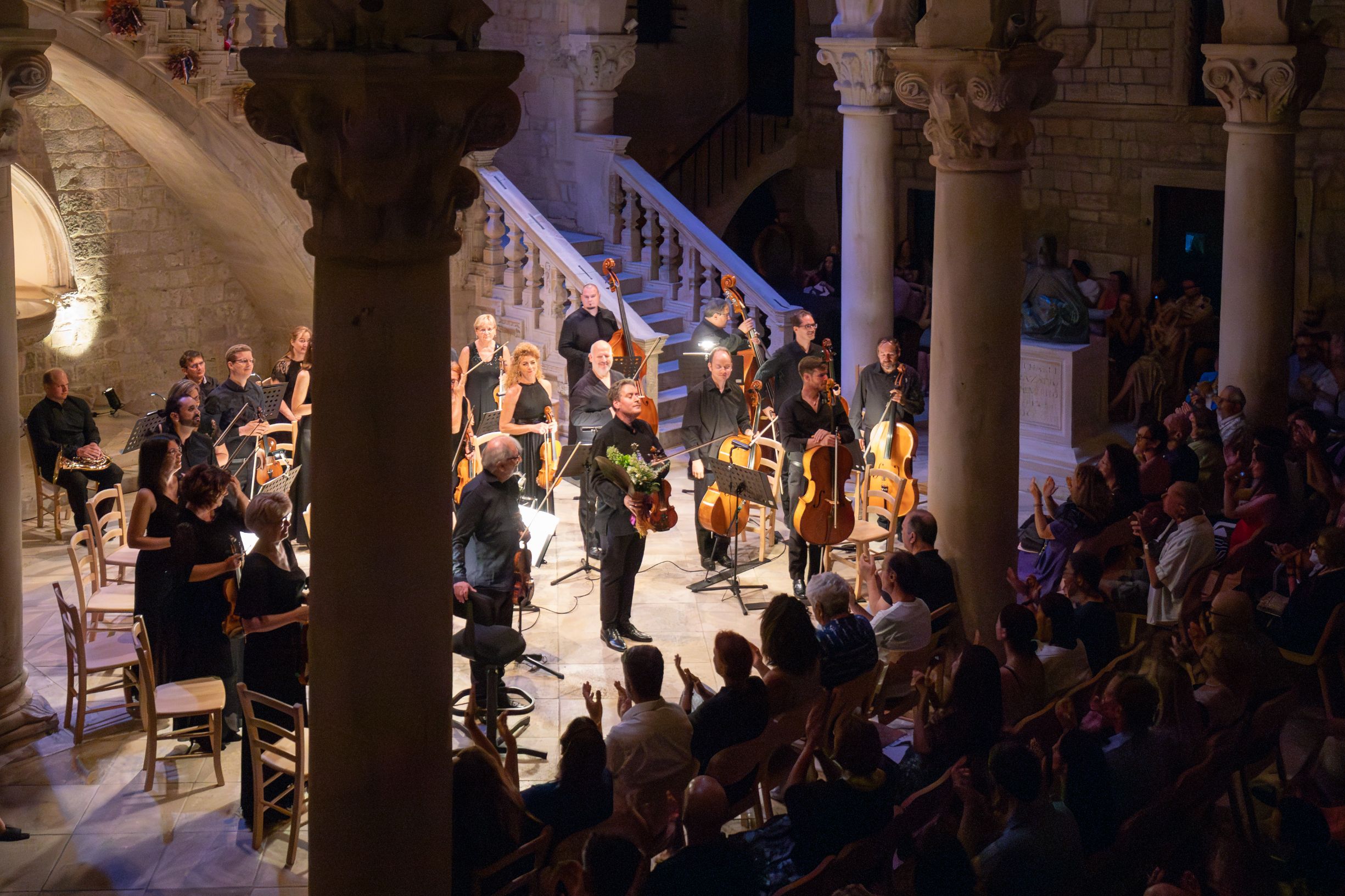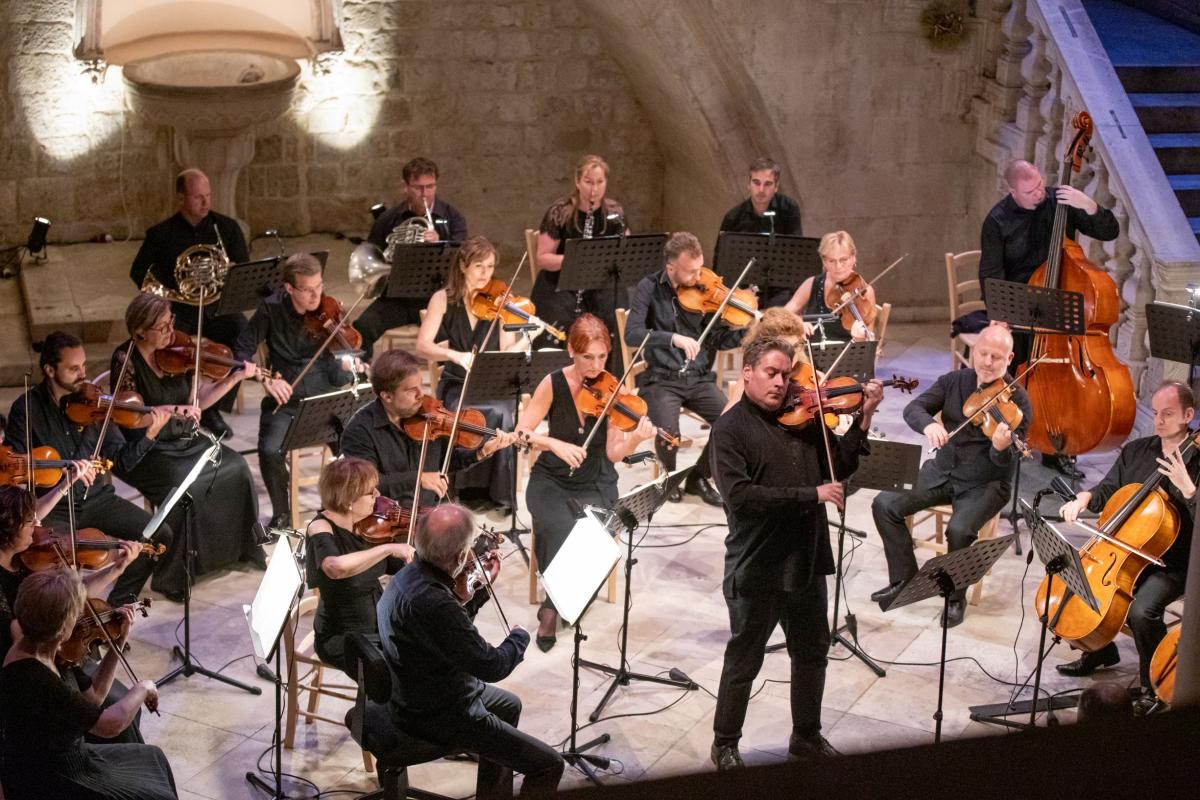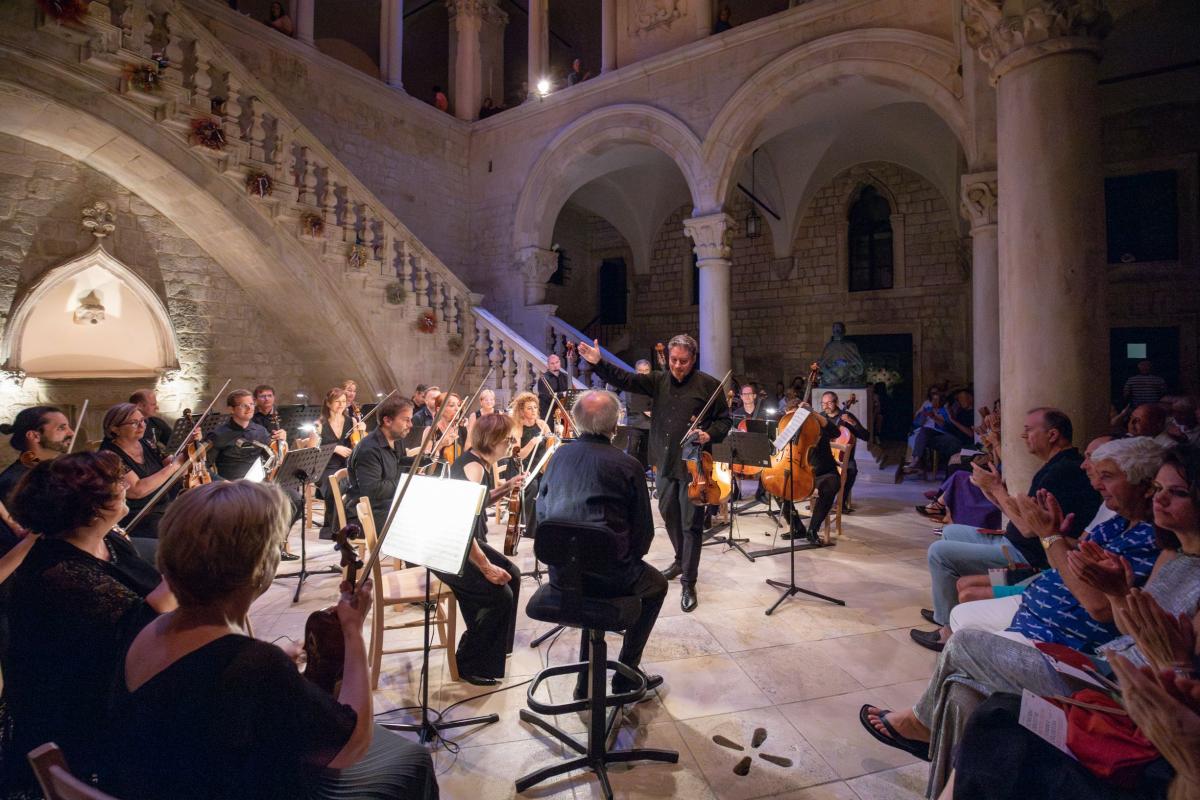
One of the leading names on the international classical music scene, the peerless Hungarian violinist Kristóf Baráti, performed last night, 10 August in the Rector’s Palace alongside his esteemed compatriots from Veszprém, the Mendelssohn Chamber Orchestra.

The Mendelssohn Chamber Orchestra was founded in 1985 in Veszprém, the historic Hungarian city with rich musical heritage, bearing the name of the eminent composer Felix Mendelssohn Bartholody as a recognition of his legacy. It was his String Symphony No. 10 in B minor which started off the evening, a classically structured piece modelled after the works of his Classical predecessors Haydn and Bach, which he composed under the mentorship of his teacher Carl Friedrich Zelter when he was fourteen and which already contains dramatic strokes typical of Mendelssohn’s later phases for which he is known. All the enchanting melodicism of Mendelssohn was completely embodied by the strings of the chamber orchestra, led by the sure hand of violinist Péter Kováts who is their artistic leader since the founding of the ensemble. Goethe was the one who compared Mendelssohn to Mozart, and the Festival audience enjoyed Mozart well-known and often-performed Violin Concerto No. 5 in A major after the young Mendelssohn. Not much older was Mozart, and the then twenty-year-olds composition is extensive and exceptionally technically demanding, conquered from the first adagio by the violinist Kristóf Baráti with an incredible ease of playing, enchanting everyone gathered at the concert. The intertwining of the lighter themes with the darker moods culminated in the frenzied central part which gave the concerto its nickname, Turkish, and which was made even more effectively dramatic by the perfect harmony of the orchestra and soloist. The temperamental sounds continued to ring through the Rector’s Palace with Camille Saint-Saëns’ Introduction et Rondo capriccioso, op. 28, dedicated to the brilliant Spanish violinist Pablo de Sarasate. The eloquence and poetry for which Baráti is renowned was on full display during the galloping, Andalusia-coloured rhythms played with an undeniable virtuosity by each well-tuned and well-coordinated bows of the ensemble, but especially the soloist, all of which delighted the audience and earned a thunderous applause. True tonal aesthete of the highest order as Baráti is lauded, thanked the audience with an encore, playing Bach’s Largo on his 1703 Lady Harmsworth Stradivarius. The evening ended on a lively Magyar note, with two Bartók compositions – first the rich, neoclassical Divertimento, commissioned by Paul Sacher, a Swiss conductor and patron of the arts whose commissions yielded some hundred works and then Romanian Folk Dances, one of his most recognisable and popular works. Thus ended the concert for which is not too early to conclude that it is among the highlights of this summer's music programme, judging by the repeated long, resounding applause.

Tickets for the jazz and tango flavoured concert on the 74th Festival music programme, scheduled for tomorrow, 12 August at 9.30 p.m. in the Rector’s Palace and held by the top Croatian musicians, cellist Eckart Runge, pianist Martina Filjak, saxophonist Gordan Tudor, are available via the festival website www.dubrovnik-festival.hr or the service www.ulaznice.hr, at the box office in the Festival Palace (Od Sigurate 1) every day from 9:00 a.m. to 9:30 p.m. and in front of the DTS building (Vukovarska St) from Monday to Friday from 10 a.m. to 5 p.m.
